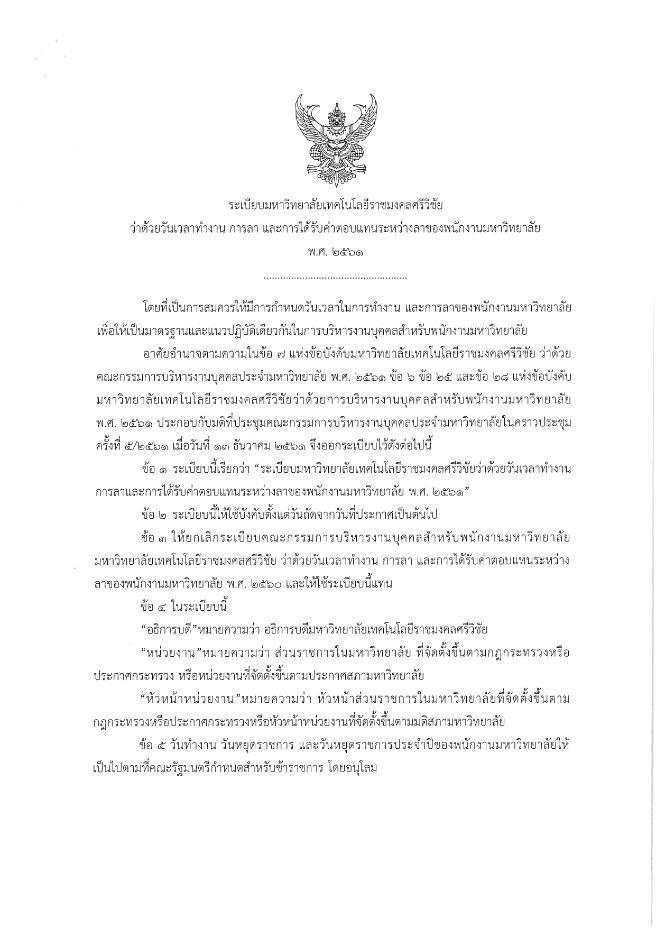Reporter: Dr Lamun Kayurin
Evidence date: January -December 2024
Related to: 
Indicator relate to : 17.2, 17.2.1,17.2.2
Rajamangala University of Technology Srivijaya (RUTS) prioritises policy development and operations that support sustainability and climate change adaptation, focusing on public and local organization engagement in sustainable natural resource management. The university adopts a comprehensive approach to promote knowledge and technology effectively addressing environmental issues. Details on the university’s Policy and Operations include:
1. RUTS in Collaboration with the Southern Eastern Meteorological Center: “Integration of Rainfall Data and Hydrological Modeling for Salinity Management in Songkhla Lake”
In 2024, Rajamangala University of Technology Srivijaya (RUTS), in collaboration with the Southern Eastern Meteorological Center, conducted a research initiative aimed at developing a salinity modeling system for Songkhla Lake. The project integrates forecasted and real-time rainfall data with a hydrological model to support sustainable water resource and ecosystem management in the lake basin. Additionally, CMIP6 climate data are downscaled to generate rainfall datasets under short-, medium-, and long-term climate change scenarios. These datasets are applied to adaptive planning for agricultural communities, enabling farmers to respond proactively to climate variability and changing salinity conditions in irrigation and freshwater systems. The impact of this project illustrated that First of all, Environmental perspective is to support sustainable management of water resources and ecosystems in the Songkhla Lake Basin. Secondly, Agricultural perspective is to provide actionable climate and salinity data to enhance adaptive farming practices, reduce crop losses, and improve food security. Thirdly, Climate Resilience perspective is to facilitate informed planning under projected climate change scenarios. Finally, Scientific perspective is to advance the application of hydrological modeling integrated with climate data downscaling for regional water management. Moreover, this project has related to 4 SDGs as follows: SDG2: Zero Hunger that focuses on supporting resilient agricultural practices through improved water and salinity management. SDG 6: Clean Water and Sanitation that enhances sustainable management of freshwater resources. SDG 13: Climate Action that ingrates climate change scenarios into adaptive planning for local community. SDG 15: Life on land that contributes to the conservation and sustainable use of aquatic ecosystems. In conclusion, this project has led to International Recognition of RUTS University of Technology Srivijaya in partnership with the Southern Eastern Meteorological Center as NGO. In addition, it demonstrates RUTS’ commitment to applied research addressing climate adaptation, water security, and sustainable development.
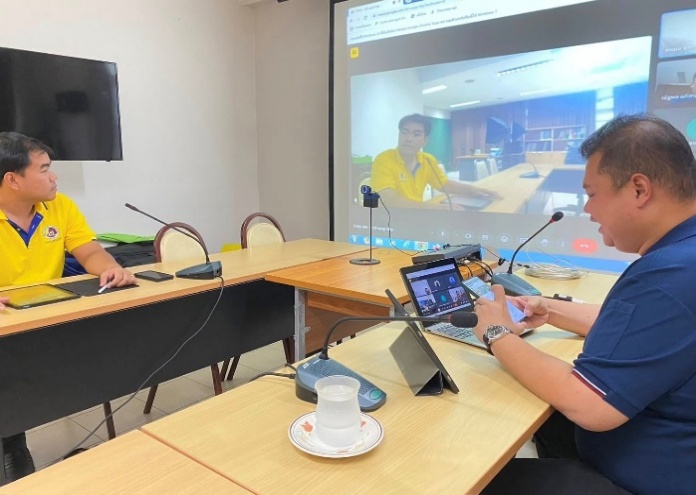
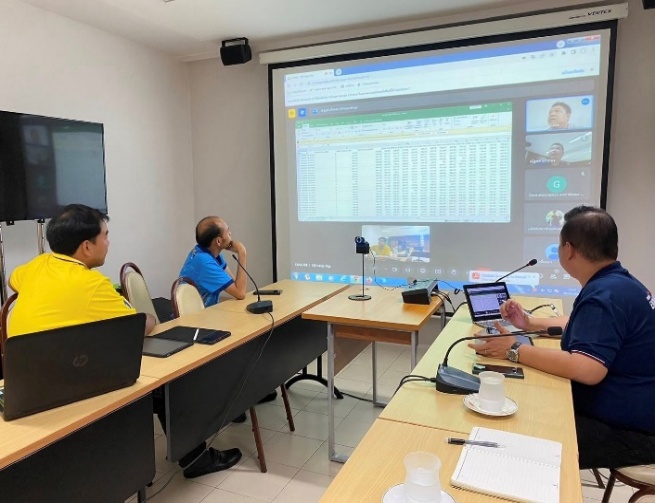
Related to link:
https://www.facebook.com/share/p/17GA7EYUB8
https://www.facebook.com/geowmu.geowmu
2. RUTS in Collaboration with Thung Song Municipality:
“ASEAN Environmentally Sustainable Cities (ASEAN ESC) Award 2024”
In 2024, Rajamangala University of Technology Srivijaya (RUTS), in collaboration with the Thung Song Municipality, The Faculty of Science and Technology, Rajamangala University of Technology Srivijaya (RUTS), in collaboration with Thung Song Municipality, conducted on-site data collection and prepared evidence-based documentation to support the indicators “Green Space” and “Urban Biodiversity” as part of the ASEAN Environmentally Sustainable Cities (ASEAN ESC) Award 2024 evaluation, held on October 17, 2024. The assessment applied the ASEAN indicator framework, which was initially structured around Clean Air, Clean Water, and Clean Land, and later expanded to include Green Spaces, Urban Biodiversity, and Circular Economy initiatives. This comprehensive framework reflects the vision of a city that is “Livable, Green, Clean, and Sustainable.” Moreover, At the national level, Thung Song Municipality was selected as one of Thailand’s representatives for the ASEAN ESC Award 2024, alongside other distinguished municipalities. This recognition underscores the municipality’s robust capacity for local environmental management and its readiness to provide data-driven evidence aligned with ASEAN sustainability standards, contributing directly to the achievement of relevant Sustainable Development Goals (SDGs), particularly SDG 11 (Sustainable Cities and Communities), SDG 13 (Climate Action), and SDG 15 (Life on Land). In conclusion, this collaboration perspective, RUTS has demonstrated its pivotal role in supporting evidence-based urban sustainability initiatives, fostering the integration of academic expertise with local government action to drive measurable environmental impact.
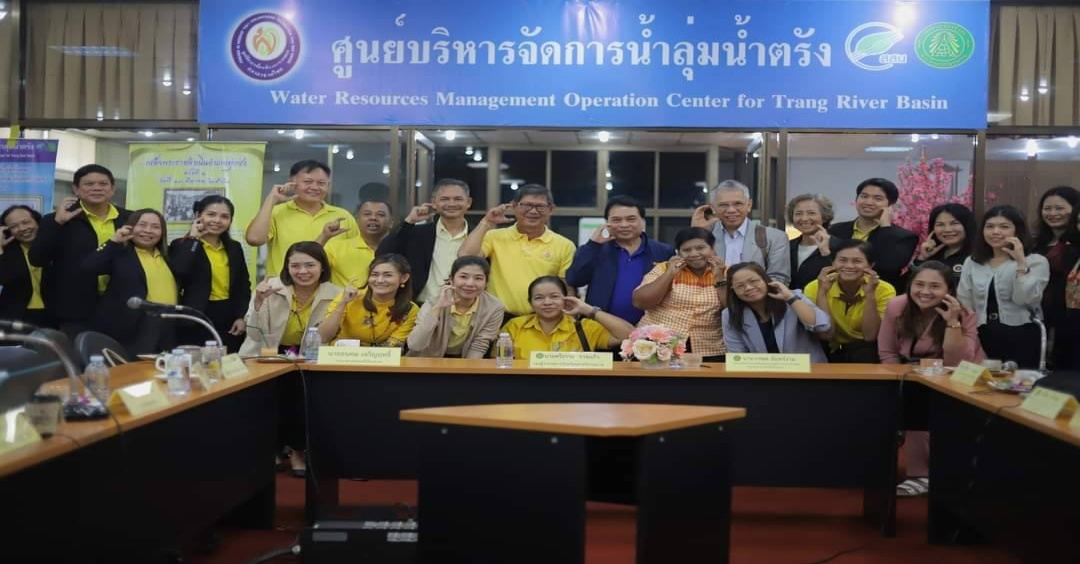
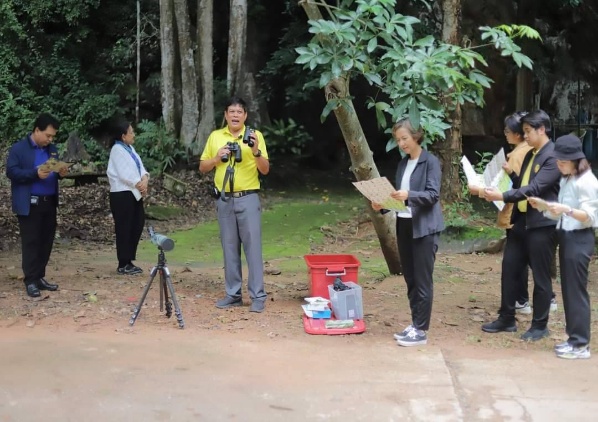
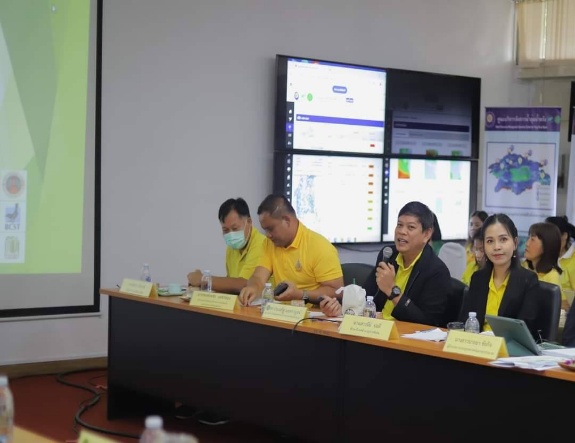
Related to link:
https://www.facebook.com/share/p/14La82xUJHH
3.RUTS in Collaboration with Songkhla Municipality to Enhance Sustainable Marine Tourism
In 2024, Rajamangala University of Technology Srivijaya (RUTS), in collaboration with the Songkhla Municipality. Asst. Prof. Udon Namsen, Vice President of Rajamangala University of Technology Srivijaya (RUTS), together with Mr. Seree Thongchum, Deputy Dean for Administration and Planning, representing the Dean and faculty of the Faculty of Engineering, partnered with the Songkhla Municipality to implement the project “From Crisis to Adaptation: Developing High-Quality Marine Tourism in the Gulf of Thailand and the Andaman Sea” under the Fiscal Year 2024 initiative. The project aims to foster a comprehensive learning ecosystem, modern management systems, and the application of technology and innovation to promote sustainable marine tourism. A key focus is the enhancement of waste management practices within the marine tourism sector through the development of tire-sweeping technology for marine waste collection vehicles. This technology is integrated into a towed beach-cleaning machine attached to garbage trucks, providing an innovative solution for efficient waste collection along coastal areas. The Faculty of Engineering successfully completed the project, delivering technological innovations that support environmental sustainability and improve waste management in Thailand’s coastal tourism regions. In conclusion, the project “From Crisis to Adaptation: Developing High-Quality Marine Tourism in the Gulf of Thailand and the Andaman Sea” directly contributes to sustainable development by improving marine waste management and promoting cleaner coastal environments, supporting SDG 6 (Clean Water and Sanitation) and SDG 14 (Life Below Water). Moreover, the development of innovative tire-sweeping technology and beach-cleaning machinery, it fosters responsible consumption and production (SDG 12), enhances sustainable tourism infrastructure (SDG 9), and strengthens community partnerships (SDG 11 & 17) to ensure resilient and environmentally friendly coastal tourism.
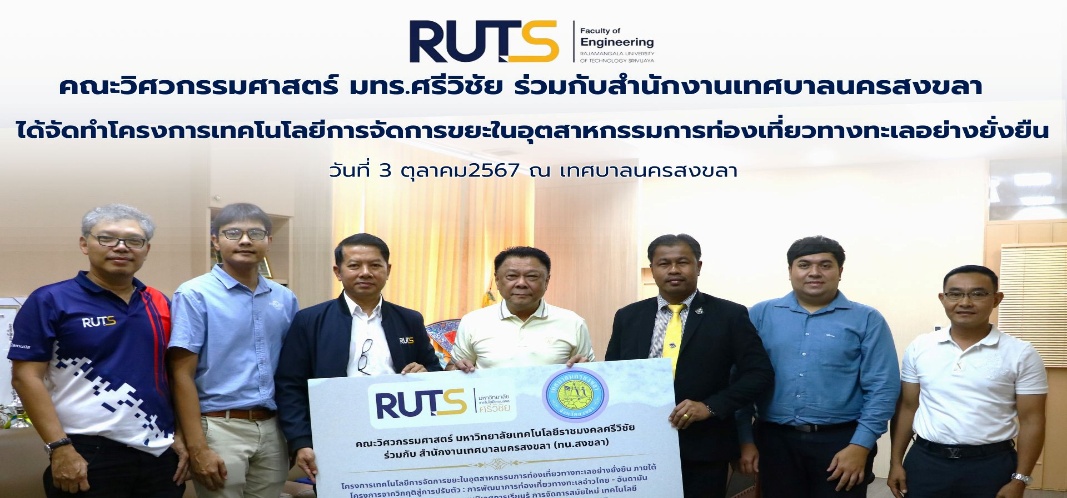
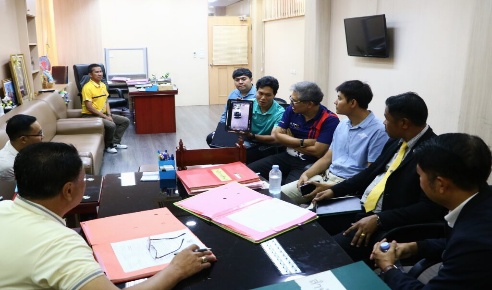
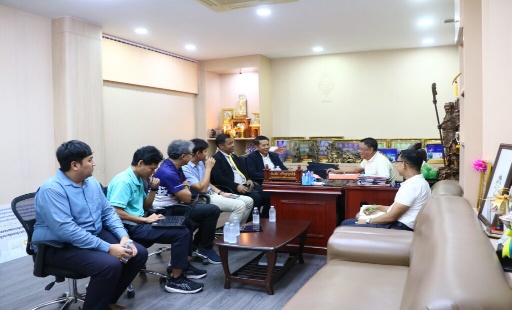
Related to link:

